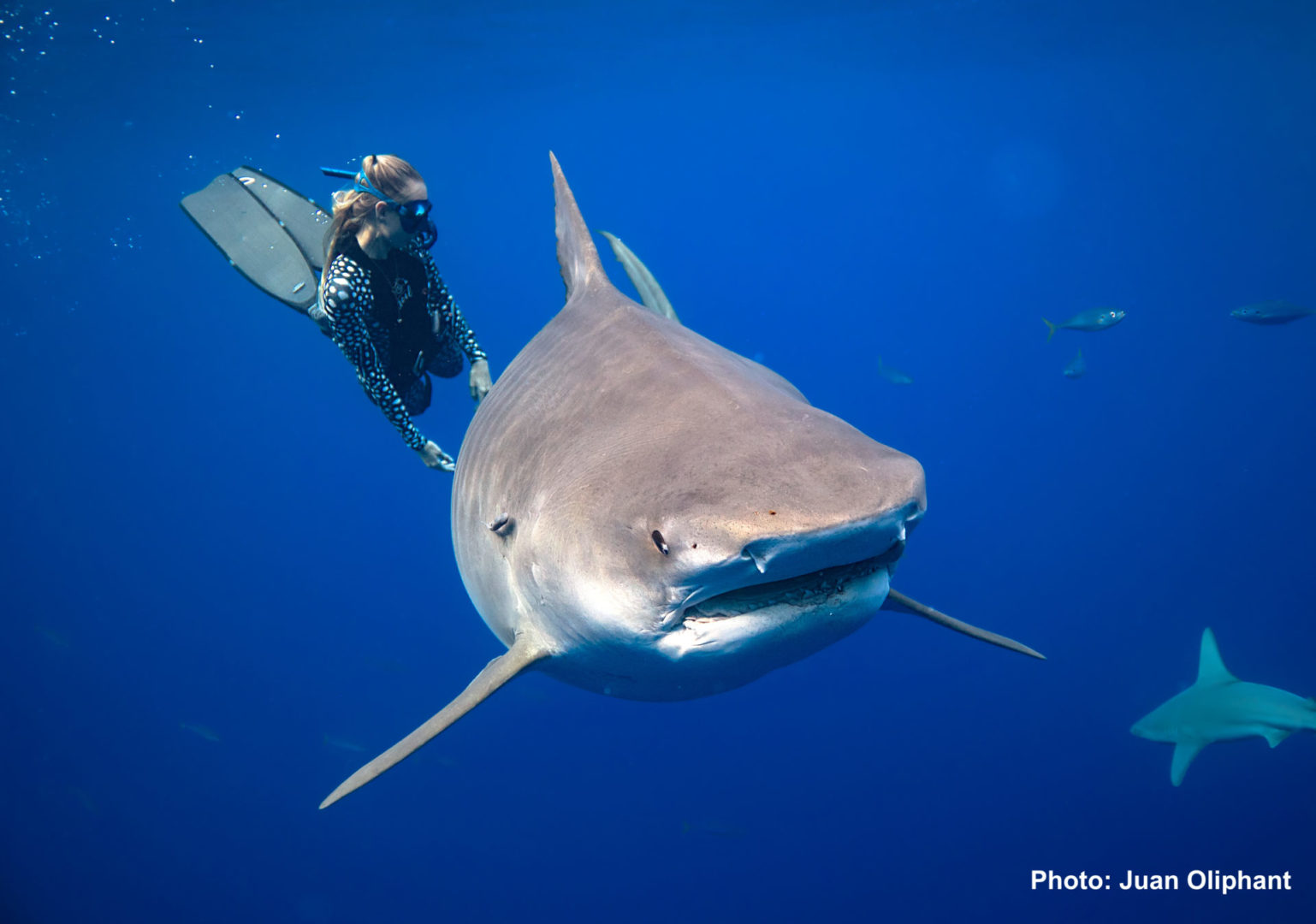
This is a guest blog by Natalie Parra, OPS Digital Communications Manager
It does not matter how landlocked you are, we all rely on a healthy ocean. And a healthy ocean relies on sharks. For hundreds of millions of years, sharks have played a vital ecological role, helping keep other marine species’ populations in check and aiding biodiversity. With the ocean combating threats from all sides like overfishing, acidification, dead zones, marine debris, the climate crisis and more, the ocean needs sharks more than ever, and therefore we do, too.
So why are we killing an estimated 11,000 sharks every hour and why does no one seem to care?
Sometimes it feels like it really all comes down to bad PR.
Personally, I grew up terrified of sharks, solely because of the way they’re portrayed in the media. I was absolutely convinced that if a shark saw me in the water it would come to bite me. As obsessed as I was with the ocean and other marine wildlife, that fear and unease persisted. It followed me through swimming lessons and surf camp. Horrid reenactments of shark bites on TV and the news spinning every shark sighting as a near-attack with a “blood-thirsty monster” kept me constantly feeling like it was only a matter of time before I was dragged under by never-ending rows of teeth.
It wasn’t until I tried freediving and finally had the opportunity to actually see sharks in the ocean with my own eyes that I realized how foolish I’d been. In reality, most of the time, sharks aren’t terribly interested in us. They have better things to do. Without the dramatic music and CGI blood that so often accompanies sharks in films and TV shows, it became abundantly clear who the real monsters are. I have seen sharks who have left human encounters with broken jaws, mangled fins, bullet wounds, and fishing line wrapped so tightly around their bodies it had started to tunnel into their flesh. I’ve watched them have their fins sliced off and tossed into piles at fishing harbors. Sharks have survived five mass extinction events, but this slow-to-reproduce keystone species might not survive humans.
So, how do we get the public to speak up against the many threats facing sharks if so many believe them to be man-eating monsters? I believe the media plays a huge role.
While I will always have a healthy respect for sharks and treat them as the capable apex predator that they are, it has been one of the greatest surprises of my life to truly enjoy being in their company after seeing they aren’t the villains they’re portrayed to be. I know that if I can get over my fear, anyone can, but not everyone gets to experience sharks face to face, especially those who live far from the sea.
Thankfully, we can reach people all over the world easier than ever before. While we previously relied solely on major news outlets for our information, social media has changed that. We can now use our individual platforms to speak up for those without a voice and help spread information and personal experiences on the issues we care about. We have to combat the fear-mongering shows and click-bait headlines to show the world how sharks truly are and how important they are before it’s too late.
We hope you will join us at OPS and lend your voice to sharks.